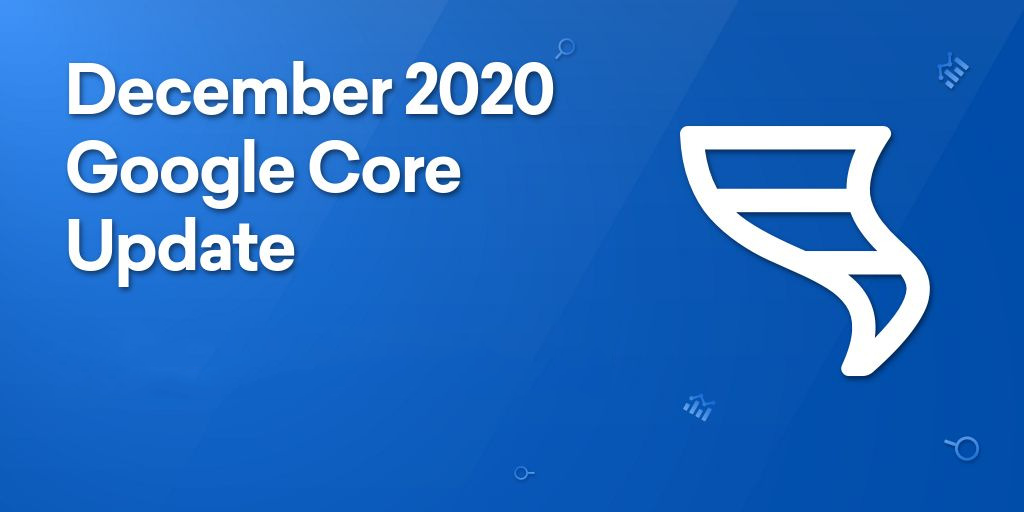
Google Rolls Out Broad Core Algorithm Update, The December 2020 Core Update
Google rolled out a core algorithm update on December 3, 2020. As mentioned in the announcement, Google’s guidance regarding the update goes on unchanged as it always has been.
In this calendar year, it is the third core algorithm update. Since the last core update more than usual time has passed, compared to the average time between these sorts of updates.
The last core update was referred to by the internet as “Star Wars Day,” also known as May 4th. Maybe Covid-19 delayed the rollout of Google’s next core update. As more time has passed than usual, does it mean the impact of the recent update will be more impactful? We will not be able to answer today, or even tomorrow, as the rollout process of a core update can take a longer time.
Framework Information on Core Updates
As expected, the instant reactions of the SEO experts to the core update rollout is a kind of agitation and dismay. Though polishing the basics of core updates can assist to kick out some of the fears.
It is always scary to the SEOs and site owners when it comes to core updates. But it is not the same thing for all sites, for some of the sites, these updates can be rewarding opportunities for their optimization efforts over the past several months. That is especially true for sites negatively impacted by previous core updates. This new core update will lay off new tactics and Google will reassess how content should rank following changes made to the site since the last update.
There can be a backswing for the sites that have been earnestly working to improve their rankings. On the other side, those sites that were not making collective attempts to enhance their content may see reflective results of their efforts.
One thing is for sure that there will be evident impacts after rollout of this core update. The main motive behind the framework of broad core updates is to produce widely evident effects across search results in all countries in all languages.
Naturally, sites will see drops and gains of search rankings after this core update. Effects in search rankings, either drops or gains, are symptomatic of content aptness.
If the significance of content has improved since the last core update then it can be anticipated to be moved higher up in rankings and vice versa. If a site adds more relevance and depth to a piece of content, it is a potent way to send prompts to Google about its relevance for particular searches.
If on the site, there is recently updated content that was not in presence during the last core update. This content will be reassessed against earlier existing content. To be sure, rankings can face drops and gains quite a bit over the coming weeks.
What Is a Google Broad Core Algorithm Update?
Not sure how a broad core algorithm is different from a major Google algorithm update? Here's how they differ, plus how to recover from a core update.
With Google’s announcement of core update, many SEO experts were left a bit confused about exactly what changed (apart from rankings). Apparently, many SEO pros were not happy with this explanation.
So, What Exactly Is a Core Update?
First, Google makes hundreds of algorithm changes per year, often more than once per day. Many of the names of algorithms we hear about (Penguin, Panda, Pigeon, Fred, etc.) are executed to address specific faults or issues in Google’s algorithms. They all had a particular purpose.
In these cases, Google informed us what they were trying to fulfill or prevent the algorithm update, and we were able to go back and cure our sites.
A core update is different. A core update is a change to the main search algorithm itself. The one that has between 200 and 500 ranking factors and signals. What a core update means is that Google slightly changed the importance, order, weights, or values of these signals. Because of that, they can not come right out and tell us what changed without revealing the secret.
The easiest way to understand this would be to imagine 200 factors listed in order of importance. Now suppose Google changes the order of 42 of those 200 factors. Rankings would change, but it would be a cluster of many things, not due to one specific factor or cause. Obviously, it is not that simple, but that is a good way to think about a core update.
Slightly More Complicated Instance Of What Google Wouldn’t Tell Us:
In this core update, Google increased the value of keywords in H1 tags by 2%, increased the value of HTTPS by 18%, the value of the keyword in title tag decreased by 9%, changed the D value in PageRank calculation from .85 to .70, and started using a TF-iDUF resurgence method for logged in users in place of the traditional TF-PDF method.
For starters, many SEOs would not understand it.
Above all, it means Google may have changed the way they calculate term importance on a page, or the weighting of links in PageRank, or both, or a whole group of other factors that they can not talk about without giving away the algorithm.
Put simply: Google has changed the weight and value of many ranking factors.
That is the simple explanation. At its most knotty form, Google ran a new training set through their machine learning ranking model and quality raters liked this new set of results as more appropriate than the previous set, and the engineers have no idea what weights changed or how they changed because that is just how machine learning works.
It is likely some random combination of weighting delivered more relevant results for the quality raters, so they tested it more, the test results confirmed it, and they purposefully sent it.
How Can You Recover From a Core Update?
Unlike a major named update that targets specific things, a core update may change the values of everything.
Because websites are weighted against other websites appropriate to your query the reason your site dropped could be entirely different than the reason somebody else is dropped or gained in rankings. To put it simply, Google is not exposing you to how to recover because it is likely a different answer for every website and query. It all depends on what everybody is trying to rank for your query is doing.
If you have put a keyword in the H1 tag then that could be a contributing factor. Do you all do that already? Then that possibly carries less weight for that corpus of results.
It is very likely that this algorithm update did not penalize you for something at all. It most likely just rewarded another site more for something else.
Maybe you were destroying it with internal anchor text and they were doing a great job of formatting content to match user intent– and Google shifted the weights so that content formatting was moderately higher and internal anchor text was slightly lower.
Actually, it was probably several minor changes that, when combined, tipped the scales slightly in favor of one site or another.
Finding that something else that is helping your competitors is not easy – but it is what keeps SEO professionals in the business.
The best advice to overcome core updates?
Keep focusing on:
● User intent.
● Quality content.
● Clean architecture.
● Google’s guidelines.
In the end, do not stop improving your site once you reach Position 1, because the site in Position 2 is not going to stop.
Google On Broad Core Algorithm Update Recovery– 4 Outcomes
Four outcomes related to how to recover from a broad core algorithm update.
Key cognizances on How to Recover from Google’s Broad Core Algorithm Update
1. Pages that lost traffic are not penalized
2. Core update is about pages ranking better if they are more appropriate(or losing ranking if less relevant)
3. Do not have to wait until the next core update to recover
4. It is not mainly about spam
How Long to Recover from a Google Broad Core Algorithm Update?
Googlebot is a software program that downloads web pages, which is known as a crawler.
It is Google’s algorithm back at the data centers to rank all the downloaded web pages. These algorithms are updated in a Core Algorithm Update.
Broad Core Algorithm Updates Are Not Penalties
Losing rankings after Core Algorithm Update can feel like being castigated. The effect is the same. But it is not the same. In a penalty, Google sends the publisher a notice through Google’s Search Console about Webmaster Guideline breaches. There is no sort of notices when you lose rankings after a core algorithm update.
This is not about the publisher doing something bad, like breaching Google’s publisher guidelines, for instance, content or link spam issue.
Why Sites Lose Rankings in Core Algorithm Updates
The reason sites lose rankings is because Google’s new algorithm has decided that definite sites are more appropriate.
What Are Google Broad Core Updates?
Kinds of Update Ranking Losses...
At least two sorts of core algorithm update losses.
Search Ranking Position Losses
In the first scenario, some sites will gain ranks, causing earlier high ranked pages to lose those positions in the search results.
Complete Ranking Losses
The second scenario is when a site totally loses rankings. This is more grave and usually requires a deep look at the SERPs.
How Long to Wait to Recover from Broad Core Update
Google’s algorithm is perpetually updating. That means you do not have to wait until the next broad core algorithm update to see improvements to your web pages have helped. You can see ranking gains sooner.
There are cases when rankings return after a successive algorithm update. That could be because some updates tend to be overly broad, affecting sites they did not hope to affect. So they might optimize whatever change they made. So if you see your rankings return after a core algorithm update, it is likely that is because they step back on some of the changes.
Core Algorithm Ranking Losses are Not Always About Quality
A rankings loss is not a sign that something bad happened to your site.
Outcomes on Recovering from a Google Broad Core Update
Most people say about every broad core algorithm update as being about quality. When a site loses rankings, they point it must be a low-quality issue. Others tend to see ranking problems as a matter of technical issues. Your site is slow, your refocuses are chained, and so on.
Quality and technical issues are legitimate worries for ranking a site. Those issues must be ratified. But that is not usually what these core algorithm updates are about.
When a site drops rankings after a core update, while technical and quality issues may exist, prefer to keep an open mind and review everything to ensure that everything that could possibly affect a low ranking is addressed especially appropriate factors.




.png)
Leave a Reply